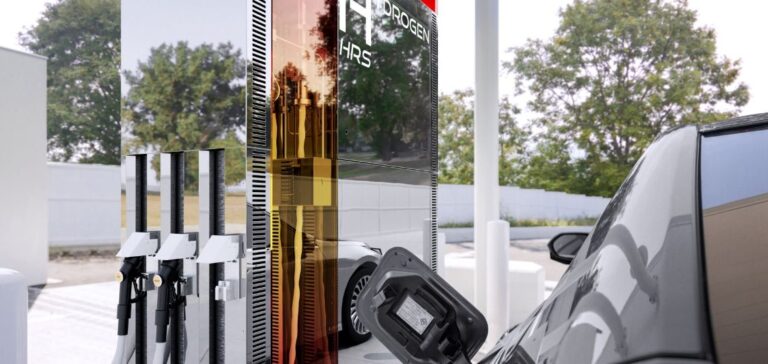HRS, a European leader in the design and manufacturing of hydrogen refuelling stations, announced the signing of a strategic order with a major player in the energy transition sector. The contract involves a station capable of producing 4 tonnes of hydrogen per day, or 160 kg per hour. The station will be located in a large European urban centre and is expected to be operational by early 2026. This project represents a first in Europe for an infrastructure of this capacity, aimed at fuelling public transport fleets with hydrogen.
The order was awarded to HRS following a competitive tender process, where the company was chosen for its proven expertise and its ability to meet the needs of a decarbonised mobility system. The station, equipped with 6 distribution terminals, will provide continuous refuelling for hydrogen vehicles. It addresses the requirements of public transport operators seeking reliable and efficient solutions to decarbonise their fleets.
With this order, HRS reinforces its leadership position in the European hydrogen station sector and confirms the growing demand for refuelling infrastructure tailored to the needs of heavy public transport. The project marks an important step forward in the development of hydrogen-related technologies, particularly in large-scale hydrogen compression and distribution.
The implementation of the project will begin in the coming months. HRS plans to release more details about the progress of the project in a future press release. Hassen Rachedi, founder and CEO of HRS, highlighted that this order validates the company’s efforts to design increasingly efficient stations adapted to the challenges of the energy transition.
A rapidly growing sector
The growth of hydrogen refuelling infrastructure for public transport has become a priority for major European cities. The need for large-capacity stations is increasing as hydrogen vehicle fleets multiply. The station ordered by HRS precisely meets this demand, offering a solution capable of serving a large fleet of vehicles while ensuring optimal performance in hydrogen compression and distribution.
Growth prospects for HRS
With this order, HRS continues its expansion in a rapidly growing European market. The company, which has positioned itself as a key player in the hydrogen station sector, sees this project as a new opportunity to extend its expertise in serving public transport operators. The company highlights the reliability and robustness of its solutions to support the energy transition in the transport sector. The project also marks an important milestone for HRS, which continues to expand its client base internationally.






















